In honor of Father’s Day, a collection of remembrances from Irish and Irish-American daughters on their fathers, many of which come from Irish America interviews.
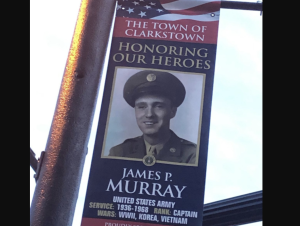
“My dad was in WWII, and Korea. He wanted to go to Vietnam but did not. He felt that when the country needed you, you better stand up and go serve it, and he was heartbroken by what happened in WWII to people in the concentration camps. He never really talked about it at all to me, but I think war impacts young people. He earned two purple hearts, two bronze stars, and one silver star. My dad was a great guy. He was a very, very well-read man, and he was a doer.” – Eileen Murray, Board of Directors HSBC, Guardian Life, and Broadridge Financial Solutions/
Interview by Patricia Harty, September / October 2018 Eileen Murray: An American Success Story.
“When I was a child, my dad would take us to the airport or the glider port. We’d sit on the hood of the car and we would watch these gliders take off. And even at summer camp and all through the summer I watched these gliders fly overhead and I thought, ‘I’d really like to do that someday.’” – Eileen Collins, the first female pilot and first female commander of a space shuttle. – From her remarks upon being inducted into the Irish America Hall of Fame in 2016
Learn more about Eileen Collins in our interview for her induction into the Irish America Hall of Fame.
“He was very musical, very dramatic, very handsome, articulate, well-read – he read everything in Braille. We loved to brag that our father could read in the dark. We were raised on great literature and great music and we had a very liberal education. He was also very radical in his politics. We wouldn’t call it radical now, he
was actually a humanist and a FDR Democrat and very outspoken on the radio. He’d talk about anything and everything. He read Dylan Thomas. He’d read Emerson, and he’d sing, and then he’d talk about Joe McCarthy and he’d talk about the war in Vietnam. Not in appreciative ways, either one. And he was really a very, very interesting man altogether. He also drank a lot. I got that Irish bug from him certainly.” – Judy Collins, Singer and Songwriter/From El Troubadour, the cover feature story in Irish America June/July 2013.
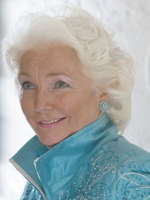 “My father would latch on to impossible schemes. I remember him going to the GPO one night with his last ten shillings, actually, my mother’s last ten shillings, so he could send a telegram – this was after the Nasser coup – to some Egyptian Army man he had met saying, ‘We are in solidarity with you. It was signed: The secretary of the Irish Egyptian Friendship Society. My mother asked, ‘What is the I/E Friendship Society?’ and he said, ‘We are.'” – Fionnula Flanagan, star of screen and stage/From Patricia Harty’s A Talk with Fionnula.
“My father would latch on to impossible schemes. I remember him going to the GPO one night with his last ten shillings, actually, my mother’s last ten shillings, so he could send a telegram – this was after the Nasser coup – to some Egyptian Army man he had met saying, ‘We are in solidarity with you. It was signed: The secretary of the Irish Egyptian Friendship Society. My mother asked, ‘What is the I/E Friendship Society?’ and he said, ‘We are.'” – Fionnula Flanagan, star of screen and stage/From Patricia Harty’s A Talk with Fionnula.
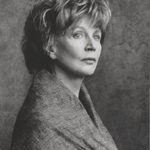 “My father [Michael O’Brien pictured above] wasn’t a tender man because of his own childhood. He was made an orphan when he was very young and he was brought up by other people. He had this rage in him. He had this uncontainable anger.” – Irish author Edna O’Brien opens up to Irish America in Mother, Life, Landscape, and Connection.
“My father [Michael O’Brien pictured above] wasn’t a tender man because of his own childhood. He was made an orphan when he was very young and he was brought up by other people. He had this rage in him. He had this uncontainable anger.” – Irish author Edna O’Brien opens up to Irish America in Mother, Life, Landscape, and Connection.
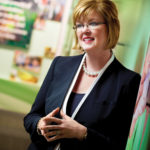 “My father [pictured above with Eileen’s mother] taught me early on that God gave you two ears and one mouth for a reason, to listen twice as much as you speak. We used to call him “the Quiet Man,” like the movie. He was a quiet, good listener, but when he spoke, he spoke profoundly.” – Eileen McDonnell, Board of Directors and retired Chairman and CEO of Penn Mutual/Interview by Patricia Harty, January/February 2019/Cheerleader in Chief of Penn Mutual.
“My father [pictured above with Eileen’s mother] taught me early on that God gave you two ears and one mouth for a reason, to listen twice as much as you speak. We used to call him “the Quiet Man,” like the movie. He was a quiet, good listener, but when he spoke, he spoke profoundly.” – Eileen McDonnell, Board of Directors and retired Chairman and CEO of Penn Mutual/Interview by Patricia Harty, January/February 2019/Cheerleader in Chief of Penn Mutual.
“My father used to critique my writing and tear my essays apart, which is kind of funny because one of my early jobs was as a speechwriter. I remember I was studying for the LSAT, and he said ‘What are you doing?’ And I said, ‘Well, I thought I would be a lawyer.’ He’s like, ‘Don’t be a lawyer. You want to go work on Wall Street!’ So I went to Bucknell University and got my degree in business, and I interviewed with Merrill Lynch, and you know, I haven’t looked back.” – Kathleen Lynch, Board of Directors Eastman Kodak and UBS / Interview by Patricia Harty, October/November 2014. Kathleen Lynch learned her Commitment to Excellence from her father which helped to drive her to Chief Operating Officer of UBS.
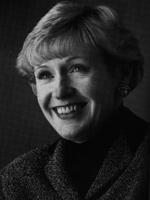 “One of the things that I think makes me pretty good at what I do is a love of reading, and I know that came from my father because he used to read to us every night when he came home from work and go through our homework with us.”
“One of the things that I think makes me pretty good at what I do is a love of reading, and I know that came from my father because he used to read to us every night when he came home from work and go through our homework with us.”
– Sheila Hartnett-Devlin, Director Mannington Mills Inc. / Interview by Sarah Buscher, 2000. Devlin was executive VP and chair of global investment at Fiduciary Trust Intl. at the time of the interview.
“He loved it because it was wild – and because he loved horses. He loved to hunt. He liked the people. He liked untamed places. And Ireland had a good deal of that. There was something sort of untamable about the earth itself. And he was an adventurer. He liked places that weren’t normal and compact. I always have this image of him on a horse galloping around the countryside.”
– Anjelica Huston, Actress on her father, director John Huston’s attraction to Ireland. (IA interview 1991). Anjelica was two when the family first moved to Ireland. She shared about her father’s love of Ireland in this piece in Irish America, Anjelica is Smashing.
“I adored my father. He was by no means perfect. He was witty. He told a good story. Enjoyed a few drinks. Loved his horses. And his peace and quiet, and somehow he managed to keep us all in check without raising his voice.
He loved to walk the marshy fields of the part of the farm called Toorianne with its streams and bog cotton and wild strawberries. Coming back from one of those walks, I remember him telling me, as if he’d been touched by magic, that he’d heard the curlew (now nearly extinct). He believed in, or at least made us believe in ghosts and the banshee, and gates that would never stay shut. He liked good clothes and his shoes well-polished, not by himself, of course. He had a good voice and was disappointed that we were ‘all tone deaf like your mother.’ But most of all he was kind. Any kids who needed a lift home from school would pile into the into the car along with his own (the days before safety belts), and as one of them, now a mother herself, recently told me – “it was penny bars all round.” – Patricia Harty, Irish America Editor-in-Chief
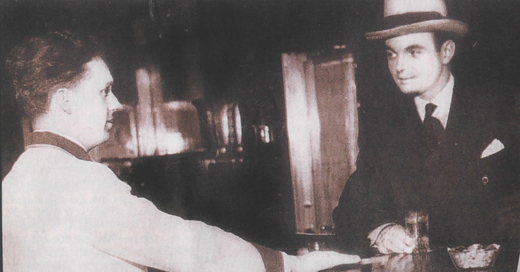
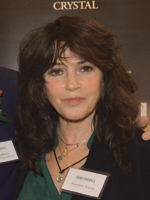
“My father, Michael Rogers, born in 1900 (or 1903, accounts vary) grew up in County Longford. Needed on the farm he left school, forever, after age 10 and left Ireland, forever, in 1926. The farm boy with the thick brogue managed to land a job at the swanky, showbizzy Astor Bar and kept it for over 35 years. In his spare time he memorized hundreds of poems and oddly, excerpts from the Almanac; he finally finished his education by taking his daughters — every Saturday — to all the museums and libraries New York had to offer.” – Rosemary Rogers, Author. / Rosemary, a regular contributor to Irish America, pens the Wild Irish Women feature.
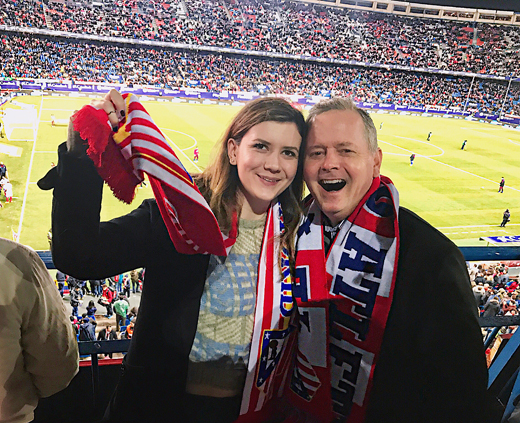
“My bedtime stories weren’t fairytales about princesses in faraway lands; they were my dad’s tales of growing up one of seven kids in the foggy lands of San Francisco’s Sunset District. I didn’t beg him to tell the one where Rapunzel lets down her hair, but the one where his brother Johnny got up at 11pm to use the bathroom and my dad thought it was morning, not taken aback by the darkness because his route began at 4 or 5, so he started his paper route, couldn’t find the newspapers on the corner, looked all over the neighborhood, and got locked out of the house. “Tell the underwear story!” I’d plead (named because Johnny eventually opened the door in his underwear). His stories quickly became canonical, and he never got to say the punch line alone.
In fact, the only time I was allowed to swear as a kid was shouting the line of Frank Garcia, my dad’s boss at the butcher shop where he worked through high school and college after my 16-year-old father forgot to shut the meat fridge the night before: “HEY PUNKASS!!!”
“Mags, most of life is looking forward to things, and then sharing stories about it afterward,” my dad told me last summer as I drove him to the American Bull to see an old friend and tell him about my brother’s wedding. “Now, should I start with how Pat lost his vows?” – Maggie Holland, former Irish America Assistant Editor & Social Media Coordinator.
“My dad always has a joke at the ready (even when no one wants to hear it), and no one laughs harder at him than he does. He gives pats on the back that make you wince with pride for earning them – and for living through them.
He’s also one of the hardest-working people I’ve ever known, supporting us for years on 12-hour night shifts driving city work trains with very little complaint. An instinct for humor, the thickest of skins, and a dogged attitude that things have been and could always be worse – gifts from our Mayo and Donegal forebears – shine through in the broad tower of fortitude and strength that is my father.
His enthusiasm for us and everything he loves knows no bounds, especially where his faith is concerned, and I hope to be able to say at the end of my life that I lived even part of it as joyously and as gratefully as Frank Gallagher lives his every day.” – Mary Gallagher, former Irish America Assistant Editor / Sales, Event, & Advertising Coordinator
“My father’s family, the Sweeneys, are from a village in County Mayo. My mother’s family, the O’Connells from County Kerry, and her father’s family, the Tormays, emigrated from a thatched cottage in Kells, County Meath. My widowed great-great-grandmother put three of her nine children on a boat to America to live with relatives in Pennsylvania. My great-grandfather, Hugh Tormay, was just thirteen when he made that trip, leading his six-year-old brother and his four-year-old sister into the unknown.
When I thought about how much courage it took for those kids and the incredible sacrifice their mother made to give them an opportunity for a better life, I realized it wasn’t unique to our family. It was just one of the countless stories of Irish immigration to the New World. Hugh Tormay and his siblings were just three of more than one million people who left Ireland during the mid-nineteenth century. And Ireland’s economic downturns in the ’30s and the ’50s and the ’80s sent more people far from home.” – Anne Sweeney, Former President of Disney-ABC Television Group / Read Anne Sweeney’s heartfelt remarks from her 2013 keynote speech.
“On St. Patrick’s Day, March 17, 2011, as the parade goes up Fifth Avenue I will be thinking of the father who came over with five pounds in his pocket and who died when I was only eleven, the mother who encouraged my dreams of being a writer by treating every word I wrote as though it was scripted by the angels, the brothers I loved so dearly and lost so young, the Irish ancestors I never knew who sent their children to seek a better life knowing they might never see them again. They’ll all march with me.”
–Mary Higgins Clark, Author / Interview by Patricia Harty, February/March 2011
In her interview prior to leading the 250th St. Patrick’s Day parade, Mary Higgins Clark shared how she would be “marching” in style.
 “His physical strength was his currency, and when he wasn’t working he kept busy around the house. I’d go home on a given weekend to find he’d built a deck, or had cut down a dead tree and dug the giant root out of the ground. Once, because it needed to be moved, he crouched under an ancient piano and lifted it on his back while my mother shouted ‘Willie! You’ll kill yourself!’ My sisters and I clapped and cheered.”
“His physical strength was his currency, and when he wasn’t working he kept busy around the house. I’d go home on a given weekend to find he’d built a deck, or had cut down a dead tree and dug the giant root out of the ground. Once, because it needed to be moved, he crouched under an ancient piano and lifted it on his back while my mother shouted ‘Willie! You’ll kill yourself!’ My sisters and I clapped and cheered.”
– Mary Beth Keane, Author /From her article in Irish America entitled “Parkinson’s Disease: My Father’s Strength,” August/September 2014.
What Are You Like? Mary Beth Keane. Learn more about the author and some of her recent books, and watch her interview on Jimmy Fallon.
“Every Sunday my father would spend the morning making homemade bread. It was a recipe he got from his Irish mother, Mary Coneely Hall. Dad said she learned it from her mother and he was carrying on the tradition. It gives me such happy memories remembering the whole house smelling wonderful and the butter melting on the warm slice right out of the oven. When my grandmother passed away he made a batch and brought a loaf as an offering during her funeral mass.” – Marian Fairweather, Irish America Art Director. ♦

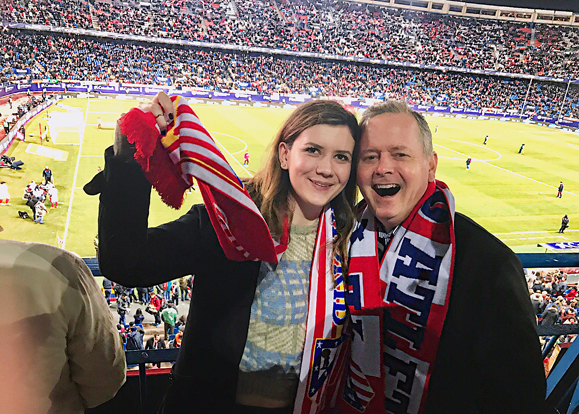
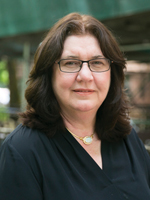

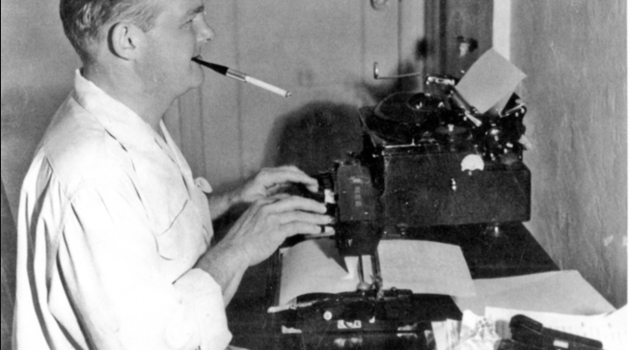
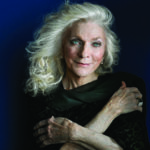
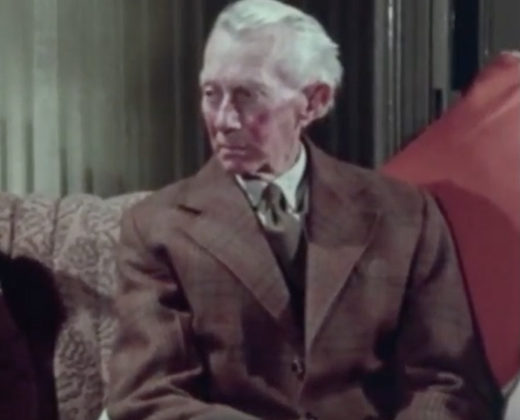
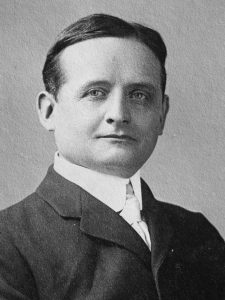
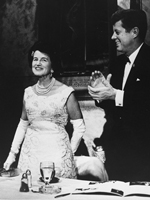
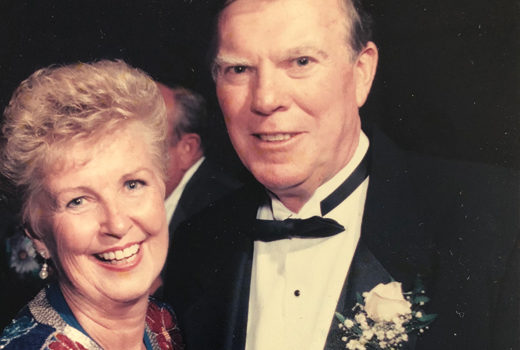
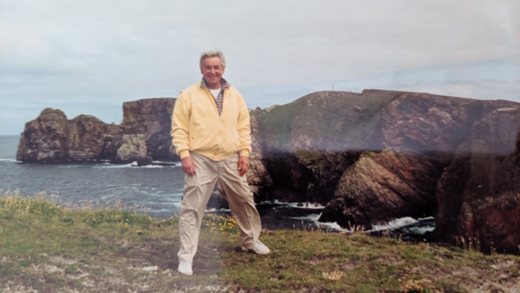
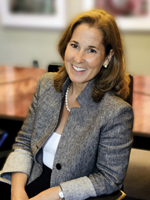
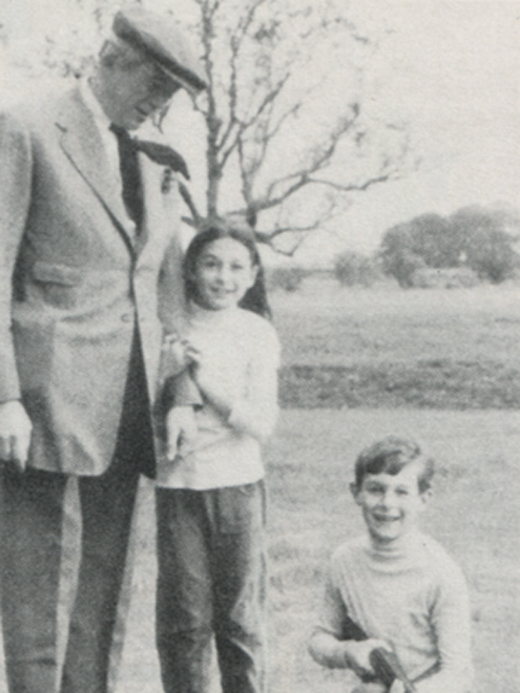
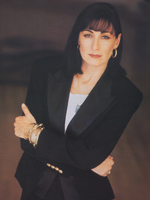

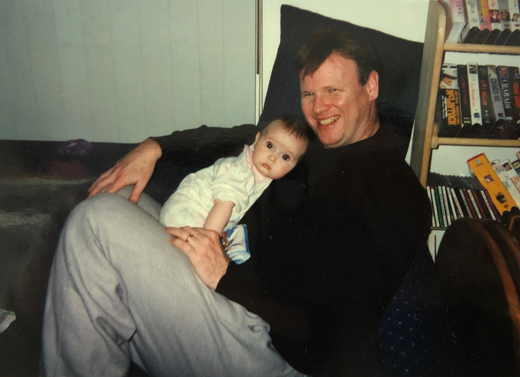

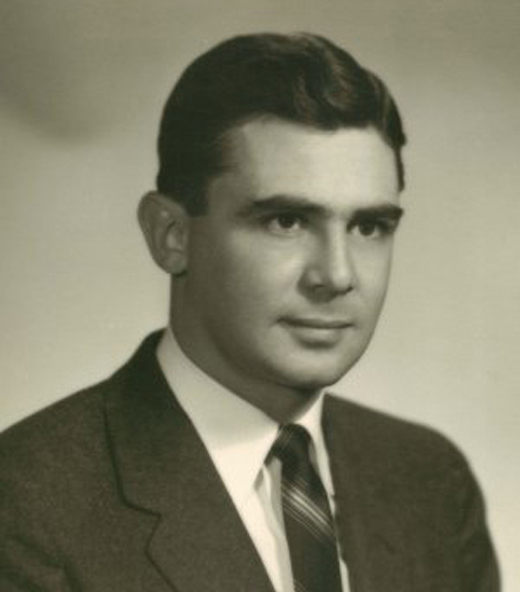
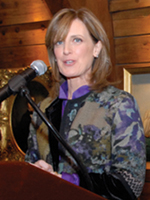
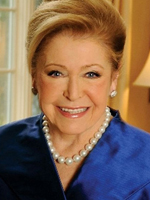
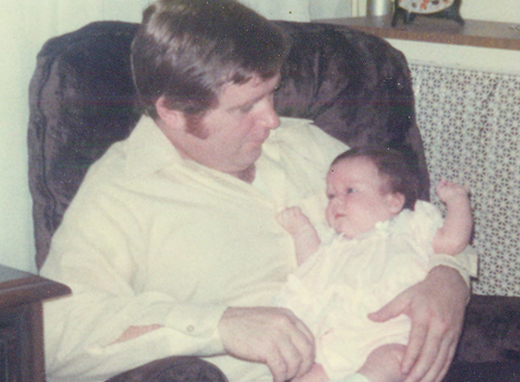
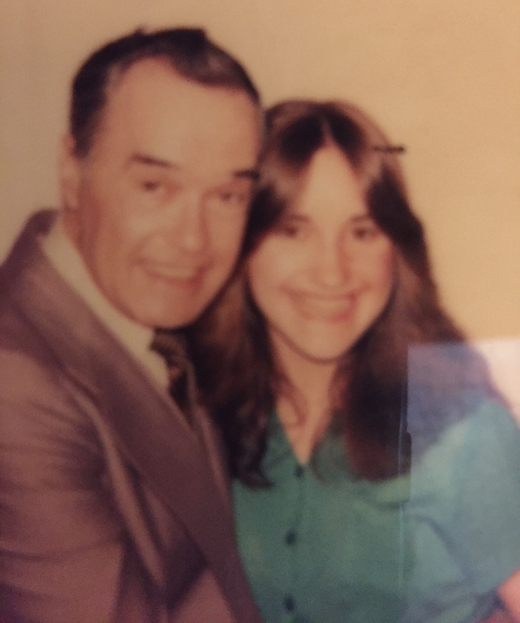
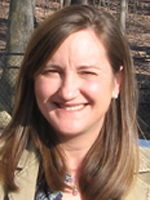
Leave a Reply